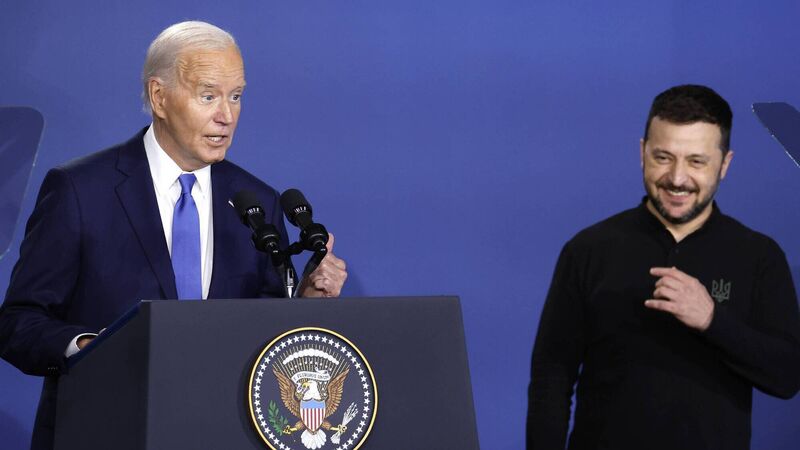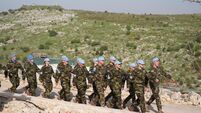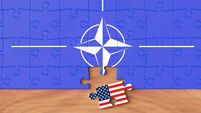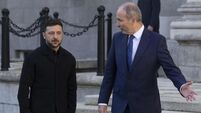Irish Examiner view: Taking away the car keys

US president Joe Biden and Ukraine president Volodymyr Zelenskyy in Washington.
Here in Ireland, protected by the triple lock and the constitutional commitment to neutrality, it is tempting to take only an academic interest in Nato, the mutual-defence organisation that was established 75 years ago this week in Washington. Tempting, but foolishly short-sighted.
As leaders of the 32 nations — including the US, France, Germany, Britain, Canada, Italy, Spain, and Turkey — that comprise the alliance gathered in Washington, much of the political attention has been on the mental vigour and acuity of the incumbent US president, Joe Biden.
CLIMATE & SUSTAINABILITY HUB
















